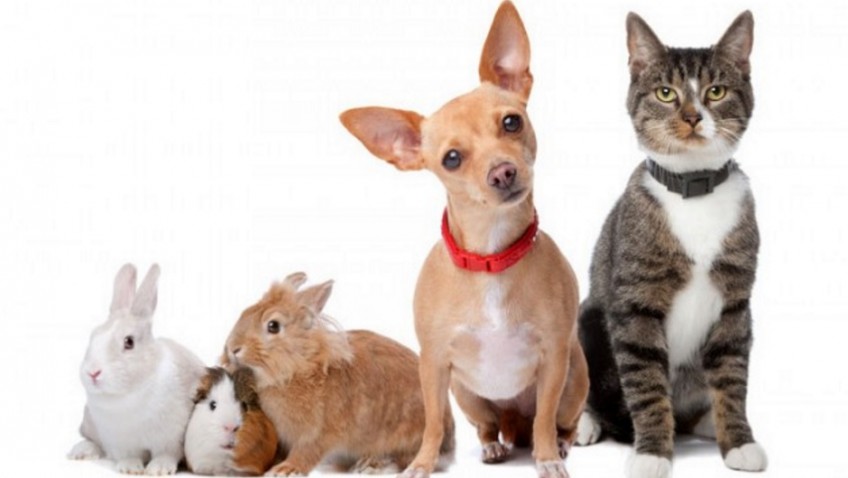Keeping your pet fit and healthy can cost you a great deal, especially if something unexpected happens when it is quite possible to be faced with a vet’s bill amounting to thousands of pounds.
Unfortunately, where pets are concerned there is no NHS to fall back on, so you as the owner are solely responsible for paying for the cost of treatment when they are ill or have an accident.
Thankfully help is available; we take a closer look at how you can get financial assistance towards veterinary bills.
Pet insurance
The best way to ensure you get help towards unexpected vet’s bills is to have a suitable pet insurance policy in place in advance.
You may be reluctant to pay for an insurance policy you may never need to use, but having cover to fall back on in case your pet needs an expensive operation or treatment for a chronic condition could end up saving you thousands of pounds, or even your pet’s life.
Pet insurance does not need to be expensive and with vet’s bills rising, even basic cover can work out cheaper in the long run as it can cover the cost should your pet fall ill.
Most pet insurance policies also provide cover for 3rd party liability and most offer compensation for the death or loss of a pet.
Policies may also cover the cost of advertising for a lost pet, boarding fees if the owner is hospitalised and compensation if a holiday has to be cancelled due to pet illness.
Charity Help
If you are on a low income, are retired or receive certain state benefits you may be able to get help towards the cost of veterinary care from a dedicated animal charity.
Some of the animal charities worth contacting are:
PDSA
The PDSA treat animals that belong to owners who get financial help from certain state benefits like Housing Benefit or Council Tax support.
Treatment is usually free of charge however the PDSA do ask anyone who benefits from free treatment to make a voluntarily donation towards the cost as the charity does not receive any government funding.
For more information and to check if your pet qualifies for free treatment you can call the free PDSA helpline on 0800 731 2502 or visit the PDSA website – you will need to register your pet before they can receive treatment.
Blue Cross
The Blue Cross run 4 animal hospitals and 4 mobile clinics across London and Grimsby. They also have 5 pet care clinics located outside London. These offer free veterinary treatment for pets whose owners are on a low income or get certain means-tested benefits.
Visit the Blue Cross website to check if you live in an area covered by the Blue Cross and whether you qualify for free veterinary care.
Dogs Trust
The Dogs Trust offer financial help towards the cost of neutering to dog owners that live in certain areas of the UK, have a low income and receive certain means-tested benefits.
Dogs Trust also support homeless dog owners through their Hope Project and Veterinary Care Entitlement card scheme.
Cats Protection
Cats Protection offer financial assistance towards the cost of neutering but do not pay out for any other veterinary care. Visit the Cats Protection website to check if you qualify for financial assistance.
RSPCA
The RSPCA focus their funds towards basic and preventative veterinary care, these include neutering, micro-chipping and vaccinations.
You cannot get any help with vets bills from RSPCA headquarters, but some RSCPA branches (which are run independently) do offer financial assistance to those on a low income or retired pet owners.
Visit the RSPCA website to find your local branch and contact them directly to see what they offer.
Vetfone helpline
Vetfone is a 24 hour vet helpline similar to NHS Direct but for pets which gives you the chance to get advice from a qualified RCVS registered veterinary nurse over the phone.
The telephone service is not free of charge, but it is often cheaper than booking an appointment with a vet and can be a useful service if you are unsure whether your pet needs to see a vet, or if your normal veterinary practice is closed.
You can either choose to pay a fixed fee of £12.50 or opt to have your call charged at £1.53 per minute plus network extras, for more details visit the Vetfone website.
Speak with your vet
If you do not qualify for help with your veterinary bills from a registered animal charity it is worth speaking to your vet because they may let you pay in instalments to spread the cost.
Whether you can do this will depend on your veterinary practice and the total cost of the treatment your pet needs.
While spreading the cost this way can give you more time to pay, you should check that there are no costs involved and that you’re not paying any extra for the privilege.
If your vet doesn’t allow you to pay in instalments, then it is worth checking with other vets in your local area before giving the go-ahead for treatment.
Compare veterinary costs
One of the best ways to keep your costs down in the long term is to make sure you are using a veterinary service offering the best value for money.
If your pet needs treatment it can be worthwhile asking several vets for an upfront quote to cover the full cost of treatment and subsequent ongoing care, while cost is not the only determining factor when choosing your vet doing this will at least allow you to compare the costs upfront and make an informed decision.
Equally if your pet is in good health it can make sense to check the cost of routine health care, including neutering and vaccinations at several vets before deciding on which to register your pet with.




